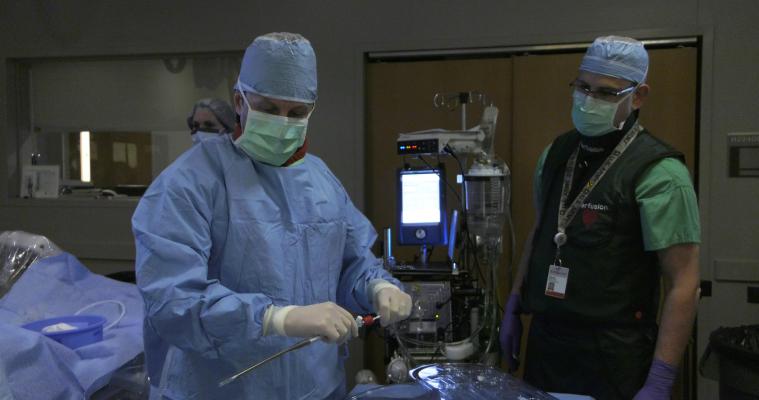
February 22, 2018 — When someone goes into cardiac arrest and first responders cannot shock their heart back into rhythm, there is virtually no chance of survival. However, a new protocol being tested at The Ohio State University Wexner Medical Center is already saving lives – increasing survival rates from zero to about 40 percent.
“It’s astounding that patients are able to fully recover and walk out of the hospital when they would have been pronounced dead in the field before this protocol was in place,” said K. Dean Boudoulas, M.D., a cardiologist and assistant professor of internal medicine at The Ohio State University Wexner Medical Center.
The extracorporeal cardiopulmonary resuscitation (ECPR) protocol was developed through a partnership with the Columbus Division of Fire. It is initiated by EMS if they are not able to restore normal rhythm after shocking a patient’s heart three times. After alerting the hospital, emergency personnel connect the patient to a device that automatically delivers CPR to preserve the patient’s brain and organ function on the way to the hospital. Upon arrival, the patient bypasses the emergency room and is taken straight to the heart catheterization lab where they are connected to an extracorporeal membrane oxygenation (ECMO) machine.
“This allows the heart and lungs to rest while doctors perform a heart catheterization to find the problem, which is usually a blocked artery,” said Bryan Whitson, M.D., Ph.D., director of the Collaboration for Organ Perfusion, Protection, Engineering and Regeneration at Ohio State.
With positive results from this and other pilot studies, experts hope that the protocol will become standard care in treating cardiac arrests.
Watch the VIDEO: Ohio State University Introduces ECMO Protocol for Cardiac Arrest
For more information: www.wexnermedical.osu.edu


 November 14, 2025
November 14, 2025 









